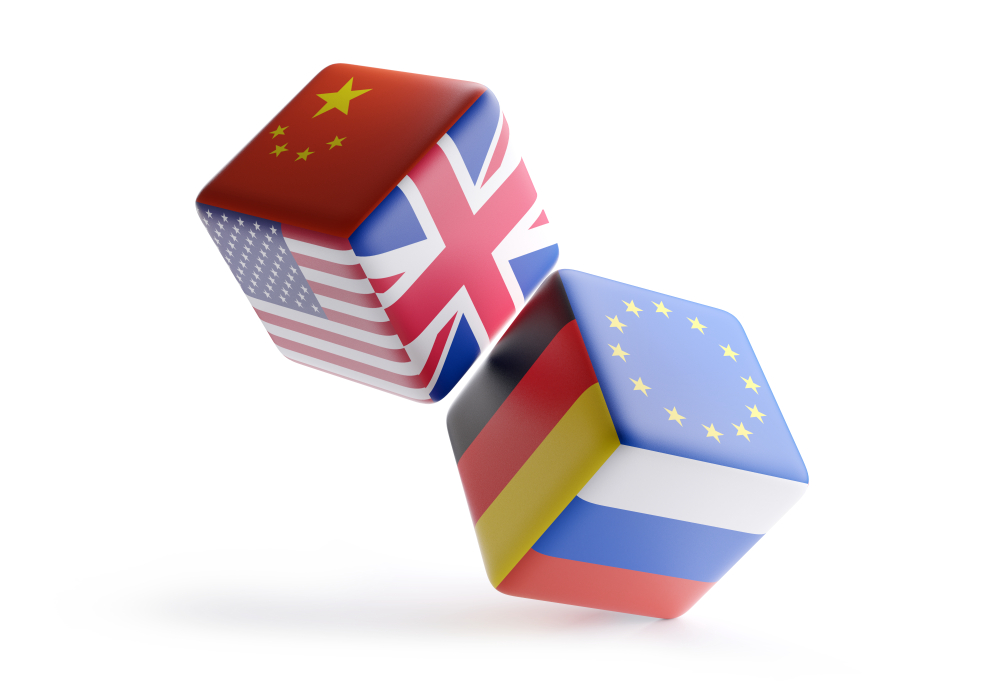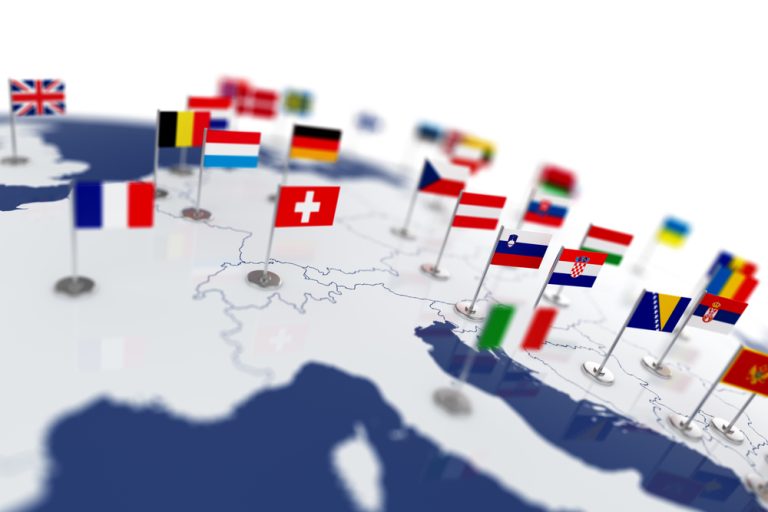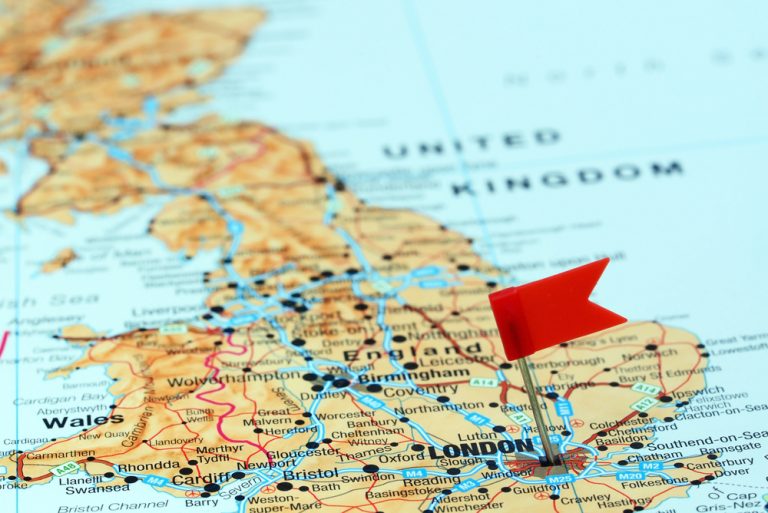
Europe is always ready to upset Washington and take a position of “neutrality” towards China
There is a growing fear in the U.S. that in the face of increasing confrontation with China, European allies will take the path of betrayal and sabotage the common alliance commitments. It was for a reason that Joe Biden criticized Emmanuel Macron in a telephone conversation back in late April, expressing his displeasure with the French president’s anti-American rhetoric that he allowed himself during talks with the Chinese. The most radical hawks in Washington believe that the EU would prefer the Americans to an alliance with Beijing, which promises it greater economic benefits. But even moderate experts have no doubt that Germany, France and other European countries will seek every opportunity to avoid engaging in a radical confrontation and maintain mutually beneficial relations with the Chinese as much as possible. To understand the reality of such a threat to the U.S., one could go on and on about economic and geopolitical calculations assessing the pros and cons of this or that choice for Europe. But we will take a slightly different path and try to compare the behavior of the Europeans in the previous Cold War, where formally adhering to the American side, they did not show excessive belligerence against the USSR.
The countries of Eastern Europe, many of which are members of the so-called Visegrad Group, are today the most committed to an alliance with the United States and opposition to China and Russia. This is not surprising knowing the experience of the existence of these states within the framework of the Warsaw Pact (WP). After the collapse of the Soviet Union, the intellectual elite of the Eastern European countries talked with gusto about how Russia was occupying and holding their countries hostage. It is pointless to argue about whether this is true or not, but it is silly to argue that a large part of the population of Hungary, Poland or the GDR adhered to this view during the Cold War, and after 1991 this opinion became known to the Western public. But the situation in Western Europe is somewhat different, although people in France or the FRG try to keep quiet about the fact that American influence was also a burden to the inhabitants of France or Germany. But from this fact, the fact of Europeans’ restrained negativity toward their “friends” from the USA and their influence on European politics remains undeniable. Soviet propaganda often referred to West Berlin as “a gun to the heart of democratic Germany”. In reality, however, this “gun” did not really want to be in U.S. hands, much less fire, but sought to lie quietly and peacefully in a closet somewhere.

At the end of World War II, the United States crushed the most powerful country in Europe, Germany. But the countries that would have fought on the right side, Britain and France in the first place, also turned out to be the actual losers. The former masters of the half-world were politically, economically and militarily dependent on a state that had once been only a European colony. The Americans tried to dismantle the colonial empires of Europe by dominating them and ensuring even in the Old World a competitive advantage for their businesses and companies. Moreover, Europe risked becoming a U.S. colony. The NATO bloc was created with the aim of “protecting” European countries, but in fact it implied the occupation of these countries by American troops. The Americans didn’t really hide their real motivations. NATO’s three main objectives were to keep the U.S. “inside Europe”, the USSR “outside Europe”, and Germany “under control”. But everyone was well aware that the last point was broader, and aimed to ensure that no state emerged in Europe that could claim real independence and challenge the Americans.
Everyone was also well aware that Western Europe, dotted with American military bases, would become a battleground and a prime target of nuclear attack by the USSR should the Cold War turn into a “hot war”. So Europe was just that kind of hostage for the U.S. that could easily be shot in the head if anything happened. Of course, Europeans did not like the USSR and were afraid of communism, but they were sensible people and did not want to burn in the fire of nuclear war and remain on the ruins and ashes. And so they unwillingly sought a relationship with the Soviet Union that could be considered neutral and that guaranteed them security and at least a relative escape from the powerful American influence. The pioneers of the new relations were the countries that, due to circumstances and their small size, had already been able to maintain their neutrality at the start of the Cold War, such as Finland and Austria. On October 26, 1955, after the withdrawal of American and Soviet troops, the Austrian parliament approved the Federal Constitutional Declaration of Neutrality. Since that day, Austria has based its diplomacy and foreign policy on peaceful coexistence and mutual support. The country never became a member of NATO, and throughout the Cold War it was a platform for peace conferences, negotiations and the almost legal work of the intelligence services of both the USA and the USSR. The Finns followed a similar path, and the policy of “criminal” neutrality toward the Communists was even called Finlandization. Although Finland only recently joined NATO, its economic and political relations with the USSR from 1945 to 1991 were collaborative and even friendly.

Later on, the larger players joined the “treason against the common cause” against the USSR. In the 60s, French President Charles de Gaulle questioned the unity of the Western world. He was speaking, among other things, to voters against the “Anglo-Saxon NATO”, which is not so much a defense against the “red menace” as an instrument of U.S. domination in Europe. In his opinion, this was contrary to the national interests of European states. In 1966, France was even briefly withdrawn from NATO. In foreign policy, it sought a deeper partnership with Germany to build a united Europe. De Gaulle saw the national interest of France, as well as the common interest of the whole of Europe, in the creation of a common integration space with the USSR and Russia. These principles of his policy were also followed by his political successors – Georges Pompidou, Valéry Giscard d’Estaing, Jacques Chirac and Nicolas Sarkozy.
The targets of U.S. attacks were also Germany, which pursued the “Eastern Brandt policy”(the policy of German Chancellor Willy Brandt to normalize relations between West Germany and the GDR), the Soviet Union and Poland and to create a common energy space in Europe when oil and gas transportation systems were built to supply West Europe with Soviet energy resources. The result in the 1980s was the “gas-pipe” deal, under which the Germans supplied equipment for the construction of gas pipelines through which Soviet gas was to be delivered to Western Europe. This led to the Urengoy-Pomary-Uzhgorod pipeline and the systematic use of Russian gas and oil by German industry and ordinary consumers in European countries. Neither U.S. threats nor sanctions against German companies stopped Germany at that time. The Americans still complain that this project put Europe on the “Russian gas needle”. Today, European countries are under similar unprecedented pressure from the U.S. to push them into the abyss of economic and even military confrontation, and no longer with the USSR, but with China. The Europeans are forced to make tough statements and even take steps, as they did at the beginning of the Cold War in the late 1940s. But historical experience and self-preservation syndrome will inevitably push them to build neutral relations with China for the same reasons that de Gaulle and Brandt became friends of the USSR. Europeans are rational and mercantile and will not allow the United States to solve its political problems at the expense of their losses and suffering. Given that China’s economic and political power seriously surpasses that of the USSR, a much stronger and more hostile alliance between the EU and Beijing is likely.

